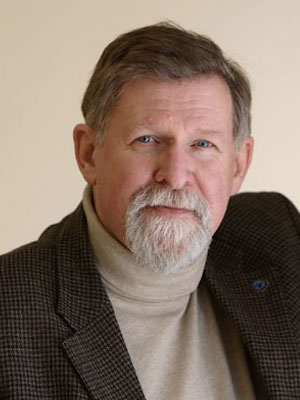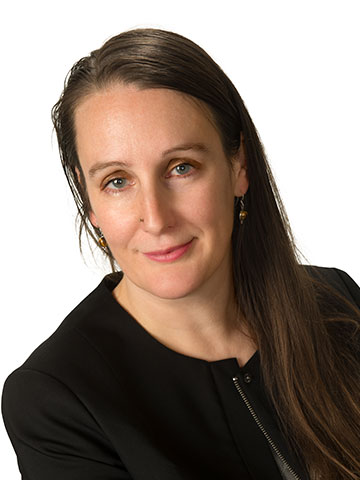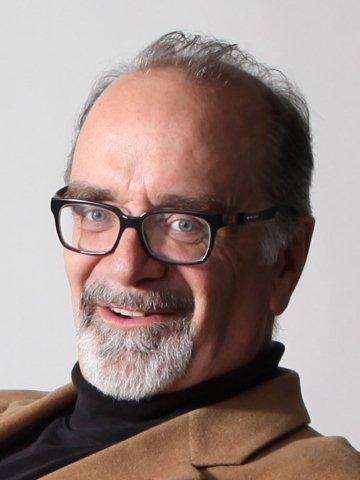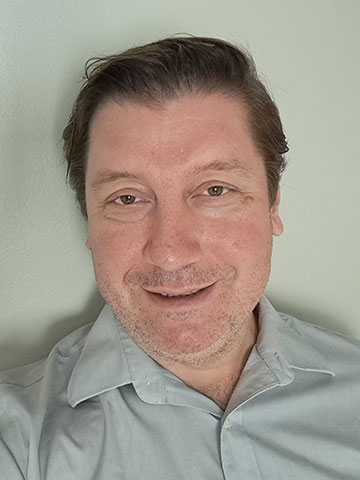Fall 2023 Courses
 Instructor: Dr. James Taylor Christie
Instructor: Dr. James Taylor Christie
“How do I know? The Bible tells me so!” Many in the 55+ constituency will recognize this refrain from a popular old evangelical hymn. The lyrics were much beloved and popularized in the early days of television by those singing cow-folk, Roy Rogers and Dale Evans. In fact, until the modern era, the Bible, and sacred texts in general, served as a kind of godly google. Popularly conceived, Scripture has been either a font of wisdom for life’s challenges, or a morass of incomprehensible regulations.
But as scholars have discovered over the past two centuries, the Bible is more: immensely more. In this course, participants will engage a sampling of the “short and tall tales” scattered throughout the scriptures, reading between the lines to discover that the riches awaiting the careful reader will prove grander than anything you might have imagined or expected. This is not your Granny’s Bible! (Bring along your favourite translation of the Bible, and your imagination.
| Class Schedule: | Location: |
|---|---|
| Wednesday, September 20, 9:30 – 11:30 a.m. | The Thomas Sill Multi-Purpose Room |
| Wednesday, September 27, 9:30 – 11:30 a.m | The Thomas Sill Multi-Purpose Room |
| Wednesday, October 4, 9:30 – 11:30 a.m. | The Thomas Sill Multi-Purpose Room |
| Wednesday, October 11, 9:30 – 11:30 a.m. | 3C12 Faculty of Arts Boardroom |
| Wednesday, October 18, 9:30 – 11:30 a.m. | The Thomas Sill Multi-Purpose Room |
| Wednesday, October 25, 9:30 – 11:30 a.m. | The Thomas Sill Multi-Purpose Room |
The Rev. Prof. Dr. James Taylor Christie
Pastor, scholar, author and essayist, dialogue theologian, ecumenist, and interreligious diplomat, Dr. Christie has devoted his life to Christian reconciliation, interreligious harmony and collaboration, and to building global community. Accordingly, he has served for over four decades in the ministry of The United Church of Canada, and for a quarter of a century with The Canadian Council of Churches, including a term as President and two terms as Chair of Project Ploughshares. Dr. Christie is Ambassador-at-Large for the Canadian Multifaith Federation and serves on the Board of Experts of the International Religious Liberties Association and the Board of the G20 Interfaith Forum Foundation. He is a life-long World Federalist, and is the longest serving Governing Council Chair, from 1995-2012. The inaugural Professor of Dialogue Theology and Whole World Ecumenism at The University of Winnipeg, Professor Christie was also Dean of Theology, the Inaugural Dean of Global College and Co-founder of the Ridd Institute for Religion and Global Policy. Dr. Christie has published hundreds of articles, essays and columns, both scholarly and popular. His two most recent co-edited volumes are The North American Churches in the Cold War, with Dr. Paul Mojzes; and Religious Soft Diplomacy and the United Nations.
 Instructor: Dr. Emma Alexander
Instructor: Dr. Emma Alexander
This six week course examines migration from South Asia in the nineteenth, twentieth and twenty-first centuries to many different regions of the world – Asia, Africa, the Caribbean, South America, North America and Europe.
We will examine the lives of labourers migrating in groups as well as the lives of individuals such as merchants, princes, nursemaids, soldiers and sailors and convicts. We will look at indentured labour recruitment patterns, and the effect of overseas issues on nationalist politics in India.
After migratory communities were established, the processes of community building began. We will analyse the establishment of educational and religious institutions, revolutionary movements, social histories and family histories as well as post-WWII settlement and labour policies in a post-colonial world, racial discrimination and inclusion in ‘plural’ or ‘multicultural’ societies, and a wide variety of issues of transnational importance including the politics of identity in a post-modern context.
| Class Schedule: | Location: |
|---|---|
| Thursday, September 21, 1:30 – 3:30 p.m. | 3C12 Faculty of Arts Boardroom |
| Thursday, September 28, 1:30 – 3:30 p.m. | The Thomas Sill Multi-Purpose Room |
| Thursday, October 5, 1:30 – 3:30 p.m. | The Thomas Sill Multi-Purpose Room |
| Thursday, October 12, 1:30 – 3:30 p.m. | 3C12 Faculty of Arts Boardroom |
| Thursday, October 19, 1:30 – 3:30 p.m. | The Thomas Sill Multi-Purpose Room |
| Thursday, October 26, 1:30 – 3:30 p.m. | The Thomas Sill Multi-Purpose Room |
Dr. Emma Alexander
Dr. Alexander completed her first degree in law at the School of Oriental & African Studies at the University of London, her BA and MA at the University of Victoria (BC) in Asian Studies and History and her PhD at the University of Cambridge in South Asian History. During her doctoral research she was attached to SNDT University in Mumbai. In 2002-04 she held a postdoctoral fellowship at the Nehru Memorial Museum & Library in New Delhi. In 2004, she took up her current post at the University of Winnipeg, where she is an Associate professor in the History Department. Her research focuses on labour and children in colonial India, and on indentured migration from India and the communities of twice migration. As of July 2023 she became Chair of the History Department at the University of Winnipeg.
 Instructor: Randall King
Instructor: Randall King
A lively look at the relationship between theatre and movies, with an emphasis on screen adaptations of major works of theatre, but with the occasional look at movies that you may have thought started out as plays (12 Angry Men, Alfred Hitchcock’s Rope) but did not. We’ll look at how some movies strived to “open up” their stagebound origins, while others radically altered the translation to screen.
Films to be studied include Golddiggers of 1933 (1933) directed by Mervyn LeRoy and Busby Berkeley, Cabaret (1972) directed by Bob Fosse, The Odd Couple (1968) directed by Gene Saks, 12 Angry Men (1957,) directed by Sidney Lumet.
Class Schedule:
All classes take place in the Thomas Sill Multi-Purpose Room.
- Tuesday, October 31, 1:30 – 3:30 p.m.
- Tuesday, November 7, 1:30 – 3:30 p.m.
- Tuesday, November 14, 1:30 – 3:30 p.m.
- Tuesday, November 21, 1:30 – 3:30 p.m.
- Tuesday, November 28, 1:30 – 3:30 p.m.
- Tuesday, December 5, 1:30 – 3:30 p.m.
Randall King
Randal was born into the entertainment beat. He was steeped in an arts environment from birth. His dad was Winnipeg musician Jimmy King, a one-time columnist for the Winnipeg Free Press. One of his older brothers, David, is a playwright-singer-songwriter. Another, Bob, is a singer-songwriter whose songs have been covered by the likes of Al Simmons, Fred Penner and Mary-Kate and Ashley Olsen. (Bob sung his Olsen twins hit Brother for Sale at Randall’s wedding reception.)
He spent some of his youth wandering the halls of the old CJAY TV station at Polo Park, where Jimmy auditioned contestants for The Amateur Show (and Randall developed a lifelong aversion to hearing the song Spanish Eyes played on the accordion).
He also haunted Winnipeg movie theatres, from horror double-bills at the drive-in to Ingmar Bergman retrospectives at the Winnipeg Art Gallery. His fondest childhood memories include watching Chiller movies on TV on Saturday nights and making fun of them, innocently unaware this could be the basis for a viable career down the road.
He moved to Toronto as a young man, seduced in part by the sheer number of excellent repertory cinemas in that town. He eventually studied English and film at York University, supporting himself by working part-time at a video wholesaler.
Returning to Winnipeg, Randall has been content to cover the entertainment beat in one capacity or another since 1990. On the film beat at the Free Press, the job has placed him in the same room as diverse talents, from Martin Scorsese to Martin Short, from Julie Christie to Julia Roberts. In a phone interview, director Russ Meyer once told him: “I like your style.”
 Instructor: Olexandr Shevchenko
Instructor: Olexandr Shevchenko
A well-known joke of the Communist times "They pretend to pay us and we pretend to work" reflected popular cynicism of the peoples of Eastern Europe in the 1960s and onwards about an attempted glorious communist project in their countries. But how did it come to that?
In this series of lectures I would like to explore how countries of Eastern Europe lived through forced communist project. What was the response of the population to the lofty but empty ideas? How was it possible to deal with everyday miseries of existence?
Drawing on the wide variety of the cases, ranging from East Germany to the Baltic States and Romania I would try to demonstrate how people managed to carve their own personal niche and evade ever present state propaganda and excessively close supervision of the secret police.
Special attention will be given to the resistance movement in the communist countries and to the question why this project collapsed like a house of cards during several turbulent months of 1989.
Class Schedule:
All classes take place in the Thomas Sill Multi-Purpose Room.
- Thursday, November 2, 1:30 – 3:30 p.m.
- Thursday, November 9, 1:30 – 3:30 p.m.
- Thursday, November 16, 1:30 – 3:30 p.m.
- Thursday, November 23, 1:30 – 3:30 p.m.
- Thursday, November 30, 1:30 – 3:30 p.m.
- Thursday, December 7, 1:30 – 3:30pm
Olexandr Shevchenko
Olexandr is a lifelong student and teacher of history. Born in the USSR, he witnessed collapse of the communist Empire first hand. He studied history in Ukraine, Hungary, Germany, the US and Canada and taught in several Universities and community programs. His areas of interest are history of the twentieth century, Ukrainian history, history of Russia, history of Europe and military history. Since 2006 he lives and works in Winnipeg as a freelance historian and interpreter.
